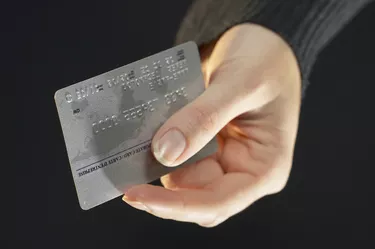
Charge accounts are typically thought of in terms of credit cards and lines of credit given to customers of certain businesses. There are three primary types of charge accounts and a fourth type that is not discussed as often as the three primary types. Generally, charge accounts allow consumers to purchase goods or services and to pay for those goods or services at a later date.
Charge accounts are also referred to as credit accounts. These accounts allow for the purchase of goods or services with the purchaser essentially making a promise to pay later. Many charge accounts have interest terms that are subject to change. For example, some credit card issuers raise interest rates if the credit cardholder makes late payments.
Video of the Day
Video of the Day
Regular Charge Account
A regular charge account is one that gives consumers a line of credit to purchase goods or services. The payment for the purchase is not due at the time of purchase; rather, it is due at a later time according to the terms of the account. For example, a company can offer its customers a charge account that can be used for purchases from the company. The company will then expect to be paid for the purchases by a certain date.
Revolving and Installment Accounts
A revolving charge account is one that allows consumers to continue to purchase goods while maintaining a balance. Most credit cards are revolving charge accounts. These accounts allow consumers to pay a certain percentage of the account's balance on a fixed date. An installment account is a form of charge account where the buyer makes payments in installments. Under an installment account, the buyer owes a specified amount and has a fixed time in which to pay it. Mortgages and student loans are two examples of installment accounts.
Charge Cards
Although many consumers think credit cards and charge cards are the same, they are not. Charge cards are a form of charge account that differs from a revolving account in that anything purchased must be paid for in full on a fixed date. This differs from a revolving charge account -- such as credit cards -- because typically only a percentage of a credit card balance is due on a fixed date. In other words, credit cardholders are generally allowed to carry balances between billing cycles. Holders of charge cards are not.